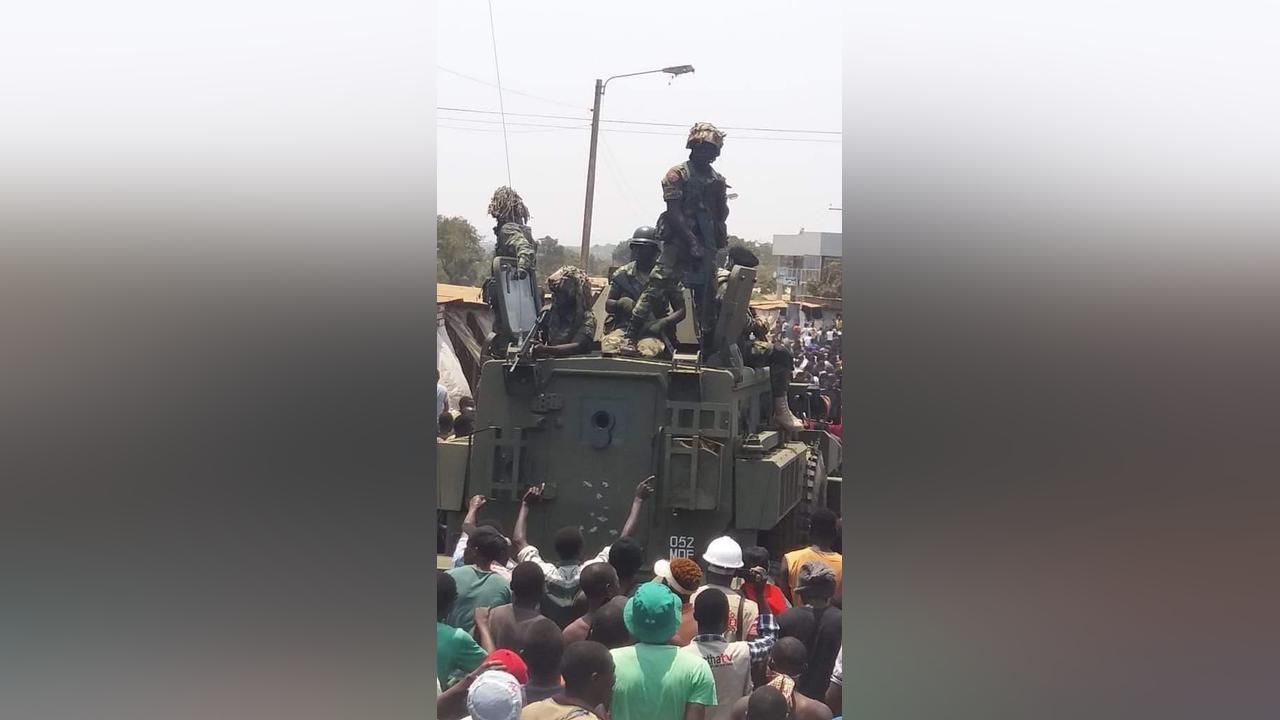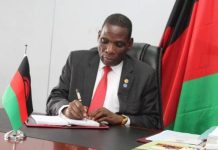By Mabvuto Mwanandiye
Africa-Press – Malawi. The helicopter scandal has spiraled far beyond the noise of political gossip and procurement blunders — it is now a ticking financial time bomb. The case between the Malawi Government and Zambia’s AYA Technologies over the aborted Bell 412 helicopter deal is not just another bureaucratic dispute. It is a legal minefield, one that could explode into an international humiliation for a country already drowning in debt and desperate for donor confidence.
Let’s be blunt: if this case reaches arbitration in Paris, Malawi will lose. Not because the government lacks lawyers or evidence — but because the facts and conduct already betray it.
Malawi’s Legal Achilles’ heel
The law is cold and cruel when it comes to contracts. The moment the Malawi Defence Force (MDF) transferred $500,000 (about K867 million) to AYA Technologies as a deposit, a binding legal relationship was created. That payment, whether made in haste or ignorance, was a signature of intent, a binding handshake that no later regret can undo.
Now, Malawi is trying to wriggle out of the deal, claiming the helicopters were “unfit to fly.”
But in the eyes of international arbitrators, what matters is not just the condition of the helicopters — it’s Malawi’s failure to act in good faith.
You cannot pay half a million dollars, hold onto the supplier’s documents for months, and then cancel unilaterally after inspections — without proper procedural notice — and expect to walk away scot-free.
In arbitration, that’s called repudiatory breach. And it comes with a heavy price tag.
A Familiar, Costly Pattern
We’ve been here before. Malawi’s history with international arbitration reads like a financial horror story.
In 2020, the government lost an $8 million case over a cancelled procurement with a European firm. In 2013, it nearly lost $15 million in another arbitration fiasco involving fuel contracts. And who can forget the Tratorgate and Fertilizergate sagas, where middlemen vanished with millions as the state fought hopeless legal battles across borders?
Each time, the government made the same fatal mistake — pride over pragmatism.
Officials preferred grandstanding at home rather than quietly negotiating fair settlements abroad. The result? Taxpayers paid billions more than they would have through mediation.
The AYA case is heading the same way — only this time, the stakes are higher and the embarrassment could be global.
What Happens If Malawi Loses
Let’s imagine what a loss at the International Court of Arbitration in Paris looks like. The tribunal orders Malawi to pay the full $9.2 million contract — plus interest, damages, and legal costs. That could balloon to over K15 billion.
If the government fails to pay, AYA Technologies can enforce the judgment globally.
That means Malawi’s assets abroad — embassies, state-owned enterprises, bank accounts, or aircraft — could be frozen.
This is not speculation. It’s precedent.
When Tanzania lost an arbitration case to Standard Chartered Bank, it watched helplessly as its global financial reputation took a dive. Zambia learned a similar lesson when creditors seized its cargo aircraft abroad after a default judgment. Malawi is heading straight into that same trap.
And remember: arbitration awards are final and binding. There’s no appeal, no political spin, no rescue by Parliament. Once the judgment comes down, it’s pay or be globally blacklisted.
The Cost of Stubbornness
Government may believe that is has a strong case. He says the helicopters were “not airworthy” and that AYA breached the contract. That may be true. But even if Malawi is morally right, it is legally vulnerable.
International tribunals don’t care about political justifications — they care about paper trails and procedural fairness. And Malawi’s paperwork, as seen by PIJ Malawi, is riddled with contradictions: invoices sent, payments made, contracts signed, and then a sudden cancellation.
That’s not a defence. That’s a confession.
Dragging this case to Paris means hiring foreign legal firms, paying court fees in euros, and flying delegations back and forth for hearings that could take years. The costs alone could exceed K2 billion, long before a single ruling is made.
And for what? To lose, pay more, and damage the country’s already fragile image as a credible contracting state?
Settle, and Move On
This is not a call for impunity — it’s a call for financial realism. Malawi should negotiate a settlement, pay off AYA Technologies fairly, and close the file. It’s cheaper, cleaner, and saves national face.
A structured mediation could reduce the claim by half, saving billions. It would also demonstrate that Malawi respects international law and commercial fairness — a signal investors desperately need to see.
Even the most patriotic argument collapses before economic truth: It is better to lose K4 billion in settlement than K15 billion in arbitration and asset seizures.
A Nation That Never Learns
Malawi’s leadership must decide what kind of country it wants to be — one that learns from its mistakes, or one that repeats them in louder and costlier ways.
AYA Technologies has already taken the first step by filing before the ICC. The clock is ticking. If the government doesn’t act now, Paris will act for it. And when that happens, it won’t just be about helicopters. It will be about Malawi’s credibility, competence, and sovereignty — auctioned off in a courtroom thousands of miles away.
Because once judgment falls, the world won’t care that the helicopters were old or broken.
The world will only see a broken promise — and a broke government.
Final word: Settle the AYA case. Not out of weakness — but out of wisdom.
Source: Malawi Nyasa Times
For More News And Analysis About Malawi Follow Africa-Press






